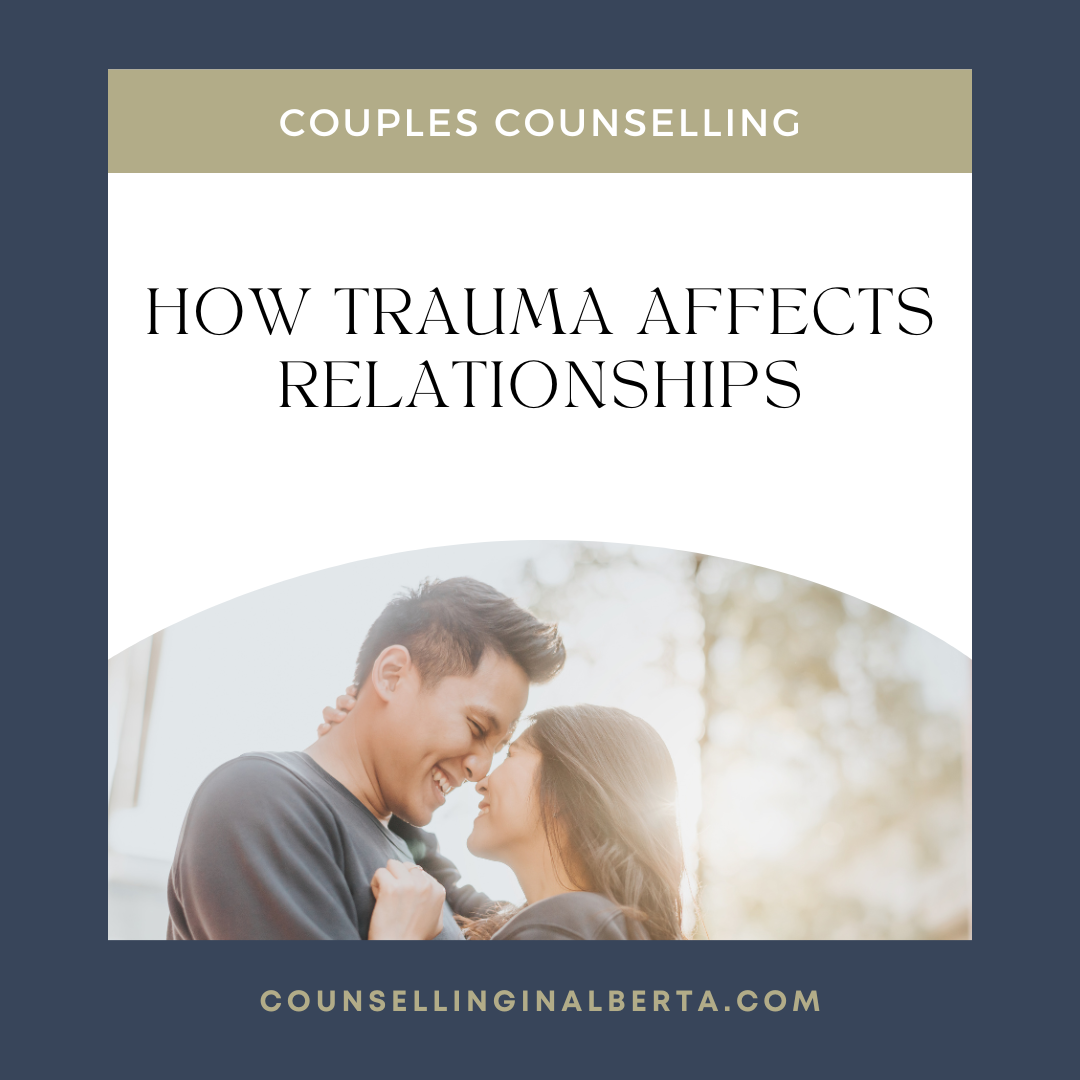How Trauma Affects Relationships
Trauma can critically impact your relationships, affecting daily dynamics, emotional connection, communication, sex life, and trust. So, whether directly affected or not, both you and your partner may need support in healing trauma and its effects on your connection.
You can build a stronger bond and a healthier, more resilient relationship by addressing trauma together. Williamson & Associates Counselling offers a free 15-minute phone consultation to help explore trauma-related issues in relationships.
Understanding Trauma
Trauma is complex and can create deep wounds that profoundly impact one’s life, relationships, and overall well-being. Dr. Gabor Maté defines it as “Trauma is not what happens to you. Trauma is what happens inside you as a result of what happens to you.”
About 70% of people globally have been through a traumatic event in their lives. The effects of trauma can linger throughout a person's life, impacting behaviour, cognitive patterns, emotional reactions and requiring professional help to recover. Trauma may potentially lead to chronic mental health challenges such as PTSD, depression, and anxiety. It can also impact physical health, relationships, and daily functioning.
The Ripple Effects on Relationships
Dr. Sue Johnson, the founder of emotionally focused couples therapy (EFCT), emotionally focused family therapy (EFFT), and emotionally focused individual therapy (EFIT) refers to the destructive effects traumatic experiences can have on a person’s well-being and relationships as "trauma dragons." These dragons represent past hurts, fears, and unresolved emotional issues that might stem from various sources, such as childhood experiences, past relationships, or significant life events.
When triggered, these traumas can cause individuals to react in ways that might seem irrational or disproportionate to the current situation but are deeply rooted in these past experiences.
Common Trauma-Related Relationship Challenges
It is not just about the individuals who directly experience trauma. If you experience distress, your partner will likely feel it, too. Trauma can create emotional barriers, lead to miscommunication and intimacy issues, and result in other unhealthy patterns that challenge the stability and health of a relationship. So, your spouse is also an important part of your recovery process. Recognizing the issues that trauma might cause in your relationship is the first step in addressing them and healing, both individually and as a couple. In a relationship, trauma dragons can show up in various ways. For instance, if your partner experienced abandonment in the past, they might become overly clingy or anxious when you seek some alone time. They may interpret this normal need for space as a sign of approaching abandonment. Similarly, if you experienced excessive criticism or emotional neglect in the past, you might become excessively defensive or shut down emotionally at the slightest hint of critique or disconnection from your partner.
Normalizing these reactions is crucial in the therapeutic process. It involves recognizing that such responses are not signs of relationship inadequacy or personal failure but instead natural protective mechanisms developed in response to past trauma. By acknowledging and understanding these trauma dragons, couples can learn to approach them with compassion and empathy, creating a safe emotional space where healing and more profound connection can occur.
The Role of Trauma Therapy
Trauma-focused therapy is critical for individuals and couples as it provides a safe and supportive space to process and heal from traumatic experiences. Eye Movement Desensitization and Reprocessing (EMDR), Somatic Experiencing (SE), and emotionally focused therapy for individuals (EFIT), couples (EFCT), and families (EFFT) can help address trauma-related issues, rebuild trust, enhance communication, and foster emotional resilience.
A big part of emotionally focused therapy is helping individuals, couples and families identify trauma dragons in themselves and their partners, figure out how they affect their interactions, and learn how to deal with them in ways that help them feel safe and connected and heal emotionally. This process is essential for breaking the negative cycle and strengthening and securing the bond.
Emotionally Focused Therapy for Trauma Recovery
Emotionally Focused Therapy, whether individual (EFIT), couples (EFCT), or family (EFFT) therapy, creates a safe space for processing and healing by encouraging emotional openness and vulnerability. EFCT can assist you in managing the emotional impacts of trauma by developing safe emotional connections and helping you understand the patterns in your relationship that arise from trauma responses.
Fostering a Secure Attachment Bond
According to Dr. Sue Johnson, wounds caused by trauma are best healed with the support of a significant attachment figure, whether a romantic partner or family member. EFCT can help both heal individual trauma and fortify the bonds between couples because your partner will transition from contributing to the issue to actively participating in your healing process. And when you feel secure with your partner, this provides crucial emotional support and healing, enabling you to effectively respond to each other's trauma-related needs with understanding and empathy.
Healing and Recovery
Healthy attachment helps us become more resilient. EFCT helps couples understand the power of communication in their relationship dynamics. But it doesn’t stop there. Your EFCT counsellor will help you express your attachment needs and fears in a way that pulls your partner closer instead of pushing them away. They can give you the tools to shift unhealthy bonding interactions and replace them with safety, connection, and secure bonding.
Conclusion
Trauma can manifest in various relationship challenges like emotional distance, communication breakdown, or intimacy issues. Healing trauma requires patience, empathy, and support. If you want to address the impact of trauma on your relationship in a safe, supportive space, schedule a free 15-minute phone consultation here.
Couples Counselling in Olds, Alberta
At Williamson & Associates Counselling in Olds, Alberta, our couples counsellors are trained in Emotionally Focused Couples Therapy. Our counsellors offer in-person couples counselling at our Olds, Alberta location, or online couples counselling to anyone in the province of Alberta. Emotionally Focused Couples Therapy can help you heal trauma and feel more connected and emotionally safe in your marriage and relationship. Reach out today to book your free phone consultation here with one of our amazing couples counsellors in Olds, Alberta.




